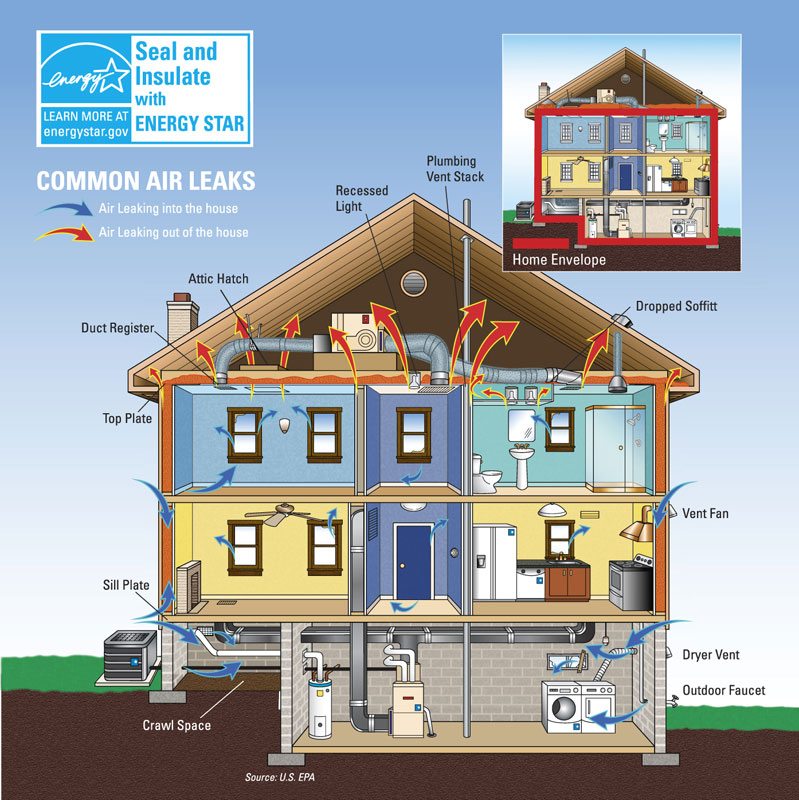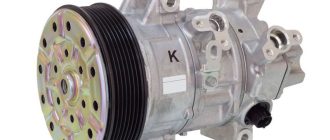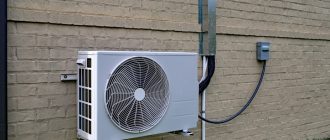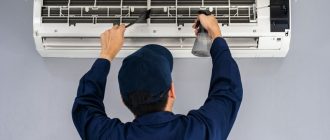
Can AC last 20 years?
When it comes to air conditioners, many people wonder how long they can last. Is it possible for an AC unit to stand the test of time and continue to provide cool air for 20 years? The answer is yes, it is possible for an air conditioner to last for two decades, but it largely depends on various factors.
Firstly, the quality and brand of the AC unit play a significant role in determining its lifespan. AC units from reputable brands tend to be more durable and long-lasting compared to their cheaper counterparts. Investing in a high-quality air conditioner from a trusted brand can increase the chances of it lasting for 20 years.
Another important factor is regular maintenance. Proper maintenance, such as cleaning the filters, checking for leaks, and addressing any issues promptly, can significantly extend the lifespan of an air conditioner. Neglecting routine maintenance can lead to wear and tear, reducing the overall lifespan of the AC unit.
Expert tip: It’s recommended to have a professional HVAC technician inspect and service your air conditioner annually to ensure optimal performance and detect any potential problems early on.
Additionally, the climate and usage patterns also impact the longevity of an air conditioner. If the AC unit is regularly used in a hot and humid climate, it may experience more strain, leading to faster wear and tear. Similarly, frequent usage for extended periods can also decrease the lifespan of the AC unit. However, if the AC unit is used sparingly and in a more moderate climate, it has a higher chance of lasting for 20 years.
In conclusion, while it is possible for an air conditioner to last for 20 years, it requires careful consideration of factors such as brand, maintenance, climate, and usage patterns. By choosing a reliable brand, performing regular maintenance, and being mindful of usage, you can increase the chances of enjoying cool and comfortable air for two decades.
How Long Can an Air Conditioner Last?: Understanding Lifespan and Factors That Affect It
An air conditioner can last for up to 20 years if it is properly maintained and used. However, several factors can affect its lifespan and potentially shorten it.
The quality of the air conditioner, the brand, and its initial installation are crucial factors that can impact how long it can last. High-quality air conditioners from reputable brands tend to have a longer lifespan than cheaper models. Additionally, proper installation by a professional can ensure its longevity.
Regular and proper maintenance is essential in extending the lifespan of an air conditioner. This includes cleaning or replacing filters, checking and repairing any leaks or damage, and ensuring the system is functioning efficiently. Neglecting regular maintenance can lead to a shorter lifespan and reduced performance.
The climate and weather conditions can also affect the lifespan of an air conditioner. Extreme heat, humidity, or cold can put additional strain on the system, causing it to work harder and potentially wear out more quickly. It is important to choose an air conditioner that is suitable for the climate in which it will be used.
The frequency and intensity of use can also impact an air conditioner’s lifespan. If it is constantly running or operating at high capacity, it may wear out more quickly than if it is used sparingly or at lower settings. Additionally, improper usage or overuse can lead to increased wear and tear on the system.
Overall, while an air conditioner can last up to 20 years, various factors can influence its lifespan. By investing in a high-quality unit, ensuring proper installation and maintenance, considering climate conditions, and using it responsibly, homeowners can maximize the lifespan of their air conditioner.
Importance of Air Conditioner Lifespan
Can an air conditioner last 20 years? This is a common question that homeowners and business owners alike often ask themselves. The answer is yes, an air conditioner can last 20 years, but it depends on a few key factors.
Firstly, regular maintenance is crucial to ensure that your air conditioner is in good working condition. This includes cleaning or replacing the air filter, checking the refrigerant levels, and inspecting the electrical components. By keeping up with these maintenance tasks, you can help extend the lifespan of your air conditioner.
Secondly, the quality of the air conditioner itself plays a major role in how long it will last. Investing in a high-quality air conditioner from a reputable brand can significantly increase its lifespan. In contrast, opting for a cheap, lower-quality model may result in a shorter lifespan and more frequent breakdowns.
Lastly, the frequency of use and the climate in which the air conditioner is used can also impact its lifespan. Air conditioners that are used consistently throughout the year or in extreme temperatures may experience more wear and tear, leading to a shorter lifespan. In contrast, air conditioners that are used sparingly or in mild climates may last longer.
In conclusion, the lifespan of an air conditioner can reach up to 20 years, but only with proper maintenance, choosing a high-quality unit, and considering its usage and climate factors. By taking these factors into account, you can ensure that your air conditioner will last for many years and provide you with the comfort you need.
Standard Lifespan for Air Conditioners
When it comes to the lifespan of an air conditioner (AC), the general rule of thumb is that a well-maintained unit can last for about 15 to 20 years. Of course, there are various factors that can affect the lifespan of an AC unit, including the frequency of use, the quality of installation, and the level of maintenance it receives.
With proper care and regular maintenance, an air conditioner can indeed last for two decades. Regularly changing air filters, cleaning the coils, and ensuring proper airflow are some of the essential maintenance tasks that can help prolong the life of an AC unit.
However, it is important to note that not all AC units are created equal. Some lower-quality models may have a shorter lifespan, while high-quality units can potentially last even longer than 20 years. Additionally, extreme weather conditions and heavy usage can also impact an AC unit’s lifespan.
As air conditioning technology continues to advance, newer models are becoming more energy-efficient, which can also contribute to their longevity. Investing in a newer, more energy-efficient AC unit can not only help save on energy costs but also potentially extend its lifespan.
In conclusion, while the standard lifespan for an air conditioner is generally 15 to 20 years, with proper care and maintenance, a well-functioning AC unit can indeed last for two decades or more.
Factors That Affect Air Conditioner Lifespan
Several factors can affect the lifespan of an air conditioner:
1. Quality: The quality of the air conditioner plays a crucial role in determining how long it can last. Higher quality models are often built with better materials and components, which can greatly extend their lifespan. Investing in a reputable and reliable brand can increase the chances of your AC lasting up to 20 years.
2. Maintenance: Regular maintenance and proper care can significantly extend the lifespan of your air conditioner. Routine tasks such as cleaning or replacing air filters, checking refrigerant levels, and cleaning the condenser coils can help prevent excessive wear and tear, ensuring that your AC operates efficiently for years to come.
3. Climate: The climate in which the air conditioner operates can also impact its lifespan. AC units that are exposed to extreme temperatures or high levels of humidity may experience more strain and wear over time. In harsh climates, it is essential to consider additional measures such as proper insulation and adequate shade to protect the unit.
4. Usage: The frequency and duration of usage can affect an air conditioner’s lifespan. If the air conditioner is used consistently for extended periods, it may experience more wear and tear. However, if it is used sparingly or has periods of downtime, it may last longer.
5. Installation: Proper installation is vital for the longevity of an air conditioner. A poorly installed AC unit may not function efficiently or may be prone to breakdowns. Hiring a professional HVAC technician to install the unit correctly and ensure proper airflow and insulation can help extend the lifespan of your air conditioner.
By considering these factors and taking appropriate measures, an air conditioner can potentially last up to 20 years. Regular maintenance, proper usage, and investing in a high-quality unit are key to maximizing the lifespan of your AC system.
Proper Maintenance and Regular Servicing
To ensure that an AC unit can last for 20 years or even longer, proper maintenance and regular servicing are key. By taking care of your air conditioner, you can extend its lifespan and keep it running efficiently for years to come.
Regular cleaning is an important part of maintenance. Dust and debris can accumulate on the filters, coils, and vents, reducing the AC’s efficiency and causing it to work harder than necessary. It is recommended to clean or replace the filters regularly to prevent clogging and airflow restrictions.
Additionally, professional servicing should be conducted annually or as recommended by the manufacturer. A trained technician will inspect and clean the internal components of the AC unit, ensuring that it is in optimal condition. They can also identify any potential issues and address them before they lead to major breakdowns or costly repairs.
Proper maintenance and regular servicing can also help identify and fix small problems before they escalate. This proactive approach can save you from unexpected breakdowns and extend the lifespan of your air conditioner. It is also important to follow the manufacturer’s guidelines for maintenance and ensure that any repairs are done by qualified professionals.
Investing time and effort into maintaining your AC unit can yield significant benefits in the long run. With proper care and regular servicing, your air conditioner can easily last for 20 years, providing you with cool and comfortable indoor environments throughout its lifespan.
Impact of Climate and Usage on Lifespan
The lifespan of an AC unit can significantly vary depending on the climate in which it is used and the user’s usage habits. Both factors play a crucial role in determining how long an air conditioner can last.
Climate is a key factor that can impact the lifespan of an AC unit. Extreme temperatures, whether hot or cold, can put a strain on the system and potentially shorten its longevity. High temperatures can cause excessive wear and tear on the components, especially the compressor, leading to premature failure. On the other hand, if exposed to severe cold temperatures, the condensate can freeze and damage the unit.
The frequency and intensity of usage also influence how long an air conditioner can last. AC units that are used continuously or run for long periods without breaks may experience more wear and tear compared to those that are used intermittently. Additionally, the level of usage, such as running the AC on high settings for extended periods or subjecting it to constant temperature fluctuations, can also impact its lifespan.
Regular maintenance and proper care can help prolong the lifespan of an AC unit. This includes cleaning or replacing air filters, ensuring proper airflow, and scheduling professional inspections and tune-ups. These preventive measures can help identify potential issues early on and extend the overall lifespan of the air conditioner.
In conclusion, while an air conditioner can potentially last up to 20 years, its lifespan can be influenced by factors such as climate and usage. By being mindful of these factors and taking proper care of the AC unit, homeowners can maximize its longevity and efficiency.
Signs That Indicate It’s Time to Replace an Air Conditioner
If you’re wondering how long an air conditioner can last, the answer is typically around 10-15 years. However, with proper maintenance and care, it’s possible for an air conditioner to last up to 20 years. That being said, there are signs that indicate it’s time to replace your air conditioner, even if it hasn’t reached the 20-year mark.
One of the first signs that your air conditioner may need to be replaced is if it is no longer cooling your home as efficiently as it used to. If you find that it’s taking longer for your home to reach a comfortable temperature or if certain areas of your home aren’t being cooled evenly, it could be a sign that your air conditioner is struggling to keep up and may need to be replaced.
Another sign to watch out for is an increase in your energy bills. If you notice that your energy costs have been steadily rising despite no major changes in your usage habits, it could be a sign that your air conditioner is no longer running efficiently. Newer models are often more energy-efficient, so replacing your old unit could help you save money on your utility bills in the long run.
Strange noises coming from your air conditioner can also indicate that it’s time for a replacement. If you hear grinding, squealing, or banging noises, it could mean that there are mechanical issues with your unit that are difficult or costly to repair. It’s best to consult with a professional to determine whether the noises can be resolved with repairs or if a new air conditioner is necessary.
Lastly, if your air conditioner requires frequent repairs or if the cost of repairs is becoming increasingly expensive, it may be more cost-effective to invest in a new unit. As your air conditioner ages, it’s normal for it to require occasional repairs. However, if repairs are becoming more frequent or if the cost is starting to add up, it may be time to consider replacing the unit altogether.
Remember, while an air conditioner can potentially last up to 20 years, these signs indicate that it may be time for a replacement sooner rather than later. By staying vigilant and addressing these signs promptly, you can ensure that your home stays cool and comfortable year-round.
Benefits of Investing in a High-Quality Air Conditioner
Investing in a high-quality air conditioner can provide a wide range of benefits for homeowners. One of the main advantages is that these units are built to last. While the lifespan of an air conditioner can vary depending on various factors, a high-quality unit can typically last up to 20 years or more with proper maintenance.
By investing in a high-quality air conditioner, homeowners can enjoy long-term savings. These units are designed to be energy-efficient, which means they consume less power and reduce energy bills. Additionally, they are equipped with advanced features such as programmable thermostats and zoned cooling, allowing homeowners to have precise control over their indoor temperature and optimize energy usage.
Another benefit of high-quality air conditioners is their superior performance. These units are designed to provide powerful cooling even in extreme temperatures. They can maintain a comfortable indoor environment regardless of the heat outside, ensuring that homeowners can enjoy a cool and pleasant atmosphere all year round.
In addition to their performance, high-quality air conditioners offer enhanced comfort features. These units are equipped with noise-reducing technology, which helps create a quieter and more peaceful living environment. They also come with advanced air filtration systems that can remove pollutants, allergens, and odors from the indoor air, creating a healthier and cleaner living space.
Furthermore, investing in a high-quality air conditioner can increase the value of a home. Potential buyers are often willing to pay more for a property that has a reliable and efficient cooling system in place. This makes a high-quality air conditioner a worthwhile investment that can provide returns in terms of both comfort and financial value.
| 1. Long lifespan of up to 20 years |
| 2. Energy-efficient for long-term savings |
| 3. Superior performance even in extreme temperatures |
| 4. Enhanced comfort with noise reduction and air filtration |
| 5. Increased property value |
Expert Insights on Prolonging Air Conditioner Lifespan
When it comes to keeping your AC unit running for as long as possible, there are a few key factors to consider. Firstly, regular maintenance is essential. Just like any other appliance, your AC needs attention and care to perform at its best. This includes changing filters, cleaning coils, and having professional inspections.
Additionally, it’s important to use your AC wisely. Running it at maximum capacity for extended periods of time can put unnecessary strain on the system, causing it to wear out faster. Instead, try setting the thermostat at a moderate temperature and using fans to circulate the air.
Proper insulation and sealing of your home can also greatly impact the lifespan of your AC unit. If your home is well insulated, it will require less energy to maintain a comfortable temperature, reducing the workload on your AC.
Finally, be aware of the age of your AC unit. While it’s true that an AC can last up to 20 years with proper maintenance and care, it’s also important to consider the advances in technology. Newer models are often more efficient and environmentally friendly, so it may be worth upgrading your system if it’s near the end of its lifespan.
By following these expert insights, you can help prolong the lifespan of your air conditioner and ensure it provides reliable cooling for many years to come.
Common Air Conditioner Problems That Affect Longevity
Air conditioners can provide cooling comfort for up to 20 years when properly maintained. However, several common problems can shorten the lifespan of an air conditioner. Identifying and addressing these issues promptly can help ensure that your unit lasts as long as possible.
One common problem is poor airflow. Restricted airflow can put strain on the system and cause it to overwork, leading to premature wear and tear. This can be caused by dirty air filters, blocked ducts, or a malfunctioning blower. Regularly cleaning or replacing air filters and keeping vents clear can help maintain proper airflow.
Another issue that can affect an air conditioner’s longevity is refrigerant leaks. Low refrigerant levels can cause the unit to work harder, leading to increased energy consumption and potential damage to the compressor. If you suspect a refrigerant leak, it’s important to contact a professional technician to locate and repair the source promptly.
Electrical problems can also impact an air conditioner’s lifespan. Faulty wiring, blown fuses, or tripped breakers can cause system malfunctions and even damage the compressor. It’s essential to have any electrical issues professionally addressed to prevent further damage and extend the life of your unit.
Air conditioners rely on proper maintenance to operate efficiently and last longer. Neglecting routine maintenance tasks, such as cleaning coils and fins, can lead to reduced performance and potential breakdowns. Regular professional maintenance, including annual tune-ups, can help identify and address minor issues before they become major problems.
In conclusion, while an air conditioner can potentially last 20 years, it’s important to address common problems that can affect its longevity. By ensuring proper airflow, addressing refrigerant leaks, resolving electrical issues, and conducting regular maintenance, you can help extend the life of your unit and enjoy years of cool comfort.
Tips for Increasing Air Conditioner Efficiency
With proper maintenance and care, an air conditioner can last up to 20 years. To ensure your air conditioner operates efficiently throughout its lifespan, consider these tips:
- Regularly clean or replace the air filter. A clogged filter can restrict airflow and cause the unit to work harder, reducing its efficiency.
- Keep the condenser unit clear of debris and vegetation. Clear any leaves, grass, or other obstructions to allow proper airflow.
- Seal any air leaks in your home. Use weatherstripping or caulking to seal gaps around windows, doors, and ducts to prevent cool air from escaping and hot air from entering.
- Ensure proper insulation in your home. Good insulation can help keep cool air inside and prevent your air conditioner from working harder than necessary.
- Install a programmable thermostat. This allows you to set different temperatures for different times of the day, reducing unnecessary cooling when you’re not home.
- Keep blinds or curtains closed during the hottest parts of the day to block out sunlight and reduce heat gain.
- Schedule regular maintenance. A professional tune-up can help identify and fix any issues before they become major problems, improving your unit’s efficiency.
- Consider upgrading to a more energy-efficient model. Newer air conditioners are designed to be more efficient and can save you money on energy costs in the long run.
By following these tips, you can help extend the life of your air conditioner and keep it running at peak efficiency for years to come.
Understanding the Role of Regular Cleaning
Regular cleaning plays a vital role in ensuring the longevity and efficiency of an air conditioner (AC) system. By keeping your AC unit clean, you can enhance its performance and extend its lifespan to up to 20 years.
An air conditioner is designed to pull in air from the surroundings, cool it down, and distribute it throughout the room. During this process, the unit collects various particles and pollutants, such as dust, pollen, pet dander, and even bacteria. Over time, these contaminants can accumulate and impact the AC unit’s functionality.
Regular cleaning helps in the following ways:
- Improved Energy Efficiency: When dust and debris build up in the AC unit, the system has to work harder to cool the air. This results in increased energy consumption, leading to higher utility bills. Regularly cleaning the filters, coils, and other components removes these obstructions and helps the system operate more efficiently.
- Prevention of Breakdowns: Dust and dirt can cause various issues with the AC system, including clogged filters, reduced airflow, and even motor failure. By regularly cleaning the unit, you can prevent these problems and reduce the risk of breakdowns, saving you from costly repairs and replacements.
- Healthier Indoor Air Quality: An AC unit that is not properly maintained can negatively impact indoor air quality. Dust, allergens, and bacteria can circulate through the system and be distributed throughout your home. Regular cleaning helps remove these pollutants, ensuring cleaner and healthier air for you and your family.
To maintain your AC system’s efficiency and longevity, it is recommended to clean the air filters at least once a month during heavy usage periods. Additionally, professional maintenance and thorough cleaning should be carried out annually. Some components, such as evaporator and condenser coils, may require specialized cleaning techniques best handled by professionals.
By understanding and implementing regular cleaning practices, you can significantly extend the lifespan of your AC system to enjoy its optimal performance for up to 20 years.
Expert Tips for Choosing the Right Air Conditioner
When selecting an air conditioner for your home or office, it’s important to consider several factors to ensure that you choose one that will last for many years. Here are some expert tips to help you make the right choice:
- Energy Efficiency: Look for an air conditioner with a high Energy Efficiency Ratio (EER) and Seasonal Energy Efficiency Ratio (SEER) rating. This will not only help reduce your energy consumption but also save you money on your electricity bills in the long run.
- Size and Capacity: It’s crucial to choose an air conditioner that is appropriately sized for your space. An undersized unit will struggle to cool the area, while an oversized unit will cycle on and off frequently, leading to increased wear and tear. To determine the right size, consult an HVAC professional or use an online calculator.
- Brand Reputation: Stick to well-known and reputable brands when purchasing an air conditioner. Brands that have been in the market for a long time and have a good track record are likely to offer more reliable and durable products.
- Warranty: Check the warranty terms and conditions before making a purchase. A longer warranty period indicates that the manufacturer has confidence in their product’s quality. It’s also important to understand what is covered under the warranty and what exclusions apply.
- Maintenance Requirements: Consider the maintenance needs of the air conditioner before buying. Some units require more frequent filter changes or professional servicing, which can add to the overall cost of ownership.
- Noise Level: If noise is a concern for you, look for air conditioners with lower decibel (dB) ratings. Modern units are designed to operate quietly, making them suitable for bedrooms or other noise-sensitive areas.
- Additional Features: Consider any specific features that are important to you, such as programmable thermostats, remote controls, or Wi-Fi connectivity. These features can enhance convenience and control over your cooling system.
- Installation: Finally, ensure that you have a qualified professional handle the installation of your air conditioner. Improper installation can lead to performance issues and void the warranty.
By considering these expert tips, you can choose an air conditioner that not only meets your cooling needs but also lasts for a significant number of years, providing you with comfortable indoor temperatures and peace of mind.
Q&A:
Is it possible for an air conditioner to last for 20 years?
Yes, it is possible for an air conditioner to last for 20 years with proper maintenance and care. Regular maintenance, such as cleaning or changing filters and coils, can greatly extend the lifespan of an air conditioner.
What are some signs that indicate an air conditioner is nearing the end of its lifespan?
Some signs that indicate an air conditioner is nearing the end of its lifespan include frequent breakdowns, reduced cooling capacity, increased energy bills, and strange noises or odors. If you notice any of these signs, it might be time to consider replacing your air conditioner.
What are some tips for extending the lifespan of an air conditioner?
Some tips for extending the lifespan of an air conditioner include regular maintenance, such as cleaning or changing filters, cleaning the coils, and keeping the area around the outdoor unit clear of debris. It is also important to avoid placing heat-producing appliances near the thermostat and to set the thermostat at a reasonable temperature to reduce excessive strain on the unit.
How often should I have my air conditioner serviced?
It is recommended to have your air conditioner serviced at least once a year. This regular maintenance can help identify any potential issues and ensure that the unit is operating efficiently. However, if you notice any problems or unusual behavior with your air conditioner, it is best to contact a professional for immediate service.





